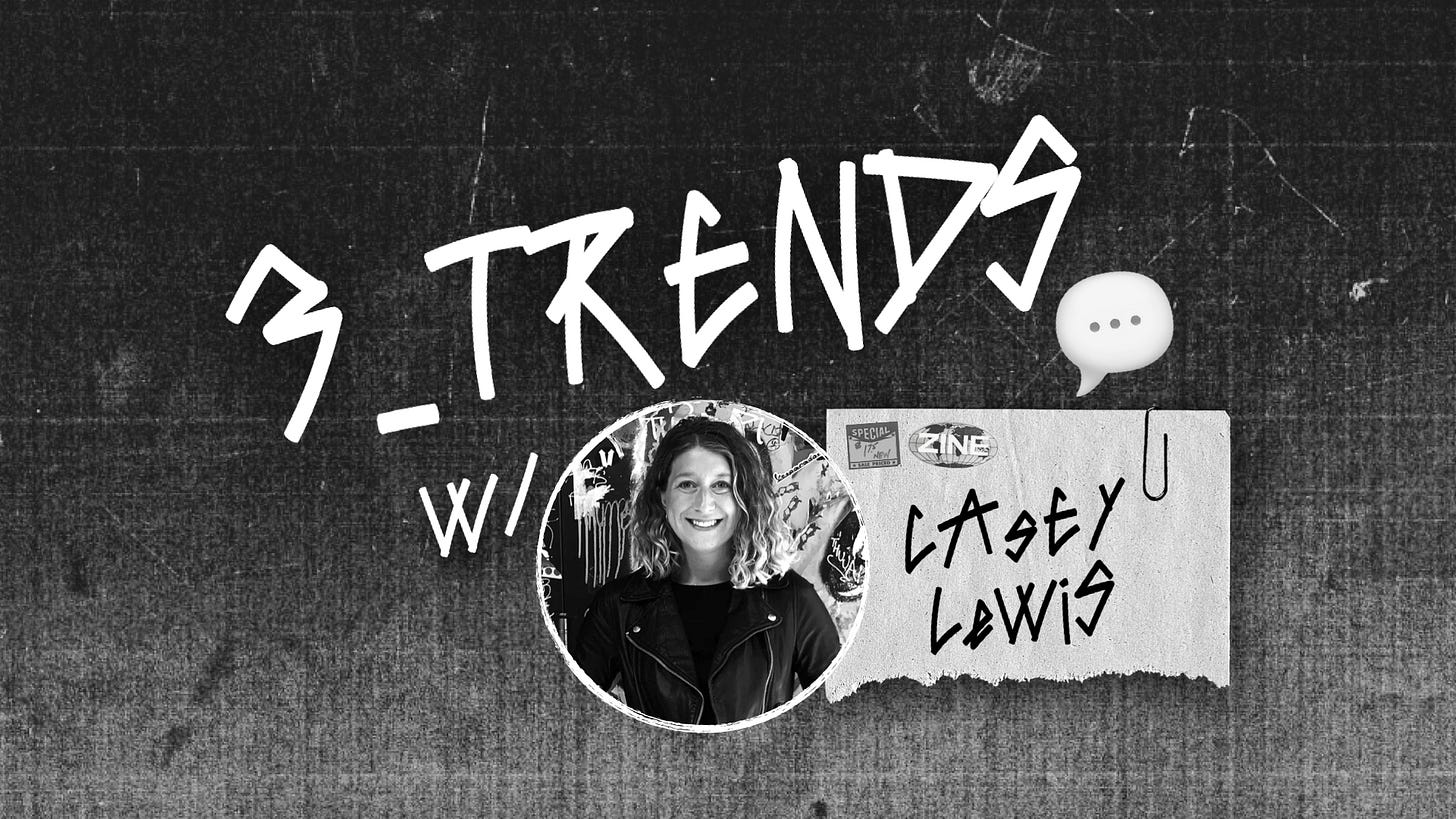3_TRENDS_Vol.18: Casey Lewis: Employee Boomerangs, Algorithmic Lotteries + Old-Phobia
Vol.18
3_TRENDS is an interview series with the world's leading cultural researchers and thinkers, sharing their favorite overlooked trends.
Casey Lewis (CL) is a writer, brand consultant, and creator of After School, a newsletter about youth consumer trends and generational shifts. She was formerly an editor at New York Magazine and Teen Vogue.
MK: Casey,…


